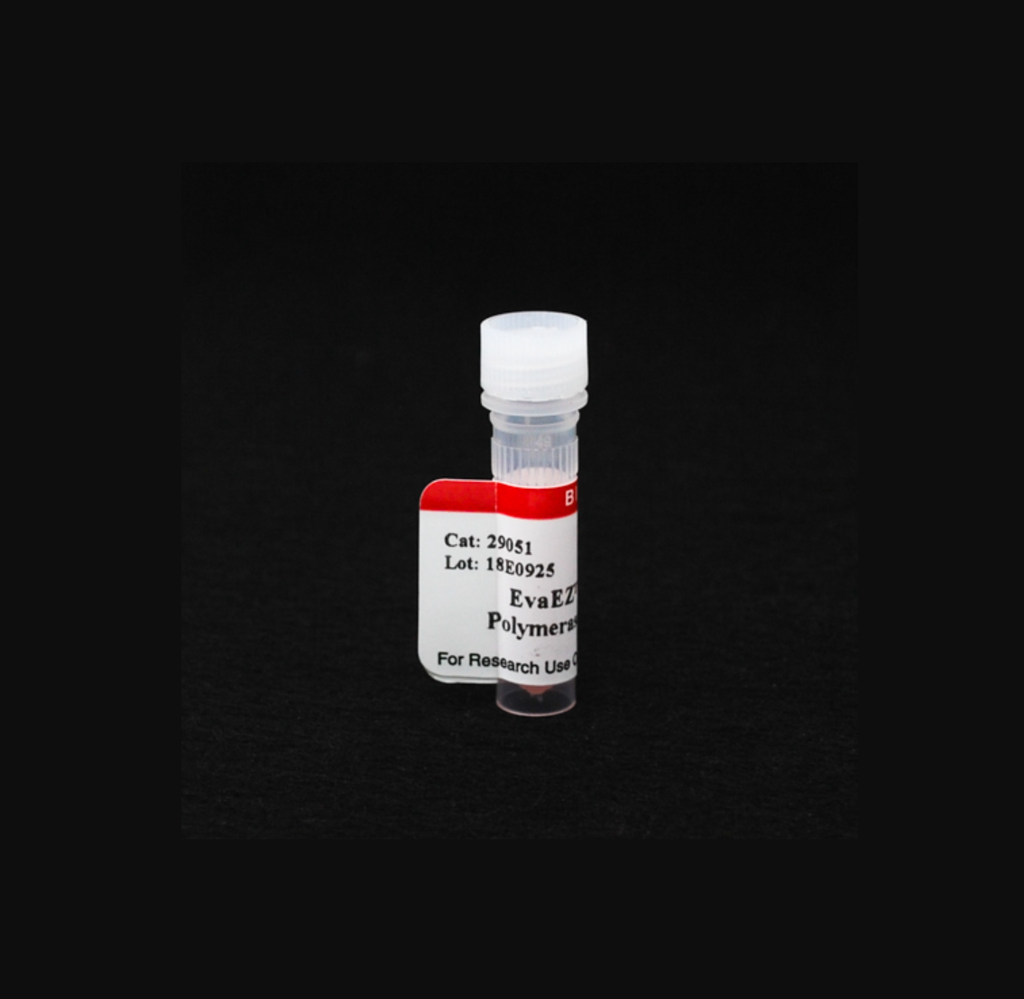EvaEZ™ Fluorometric Polymerase Activity Assay Kit provides an easy and accurate way to determine the activity of a DNA polymerase without using radioisotopes.
- Ideal for measuring Taq DNA polymerase activity
- Can also be used for other DNA polymerases such as Pfu, Vent, Phusion®, Bst, Phi29, MMLV, AMV, SuperScript®, T4 DNA polymerase, T7 DNA polymerase, Klenow, and E. coli DNA polymerase I
- Kit contains EvaGreen® Dye, a primed template, dNTPs, and MgCl2 in a Tris buffer system
- Available without magnesium by special order
In the presence of DNA polymerase activity, the primer will be extended to form a double stranded product that can bind EvaGreen® Dye, resulting in an increase of fluorescence. The rate of increase of fluorescence is positively correlated to the activity of polymerase. The activity assay can be conducted at temperatures from 4°C to 75°C.
EvaEZ™ Polymerase Activity Mix is provided at 2X concentration with 5 mM MgCl2 (final Mg2+ concentration in assay is 2.5 mM). Magnesium-free EvaEZ™ Polymerase Activity Mix (29051MF) is available on request for customers who wish to control the magnesium concentration in the assay. Contact customer service at order@biotium.com to inquire about availability.
Looking for some advice on using EvaEZ™?
Download our Tech Tip: Protocols and Tips for Success with the EvaEZ™ Fluorometric Polymerase Activity Assay Kit
The article includes advice on:
- Setting up your instrument and samples
- Setting up a titration of standard enzyme
- Calculating concentration of unknown samples
- Calculating nucleotide incorporation
- Using hotstart polymerase in the assay
- Tips for improving assay linearity and accuracy
